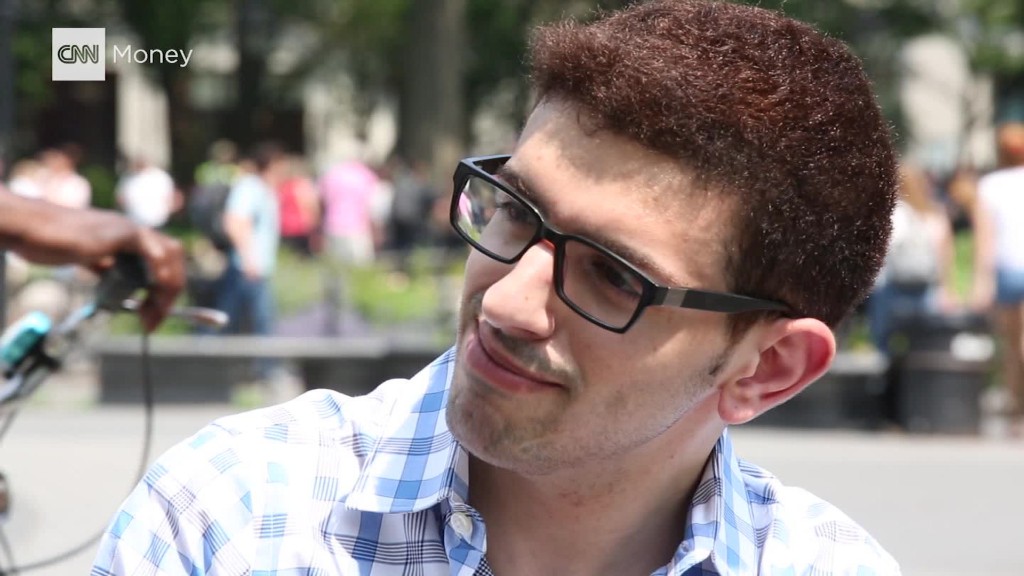
A year ago, John Calvin faced deportation to the West Bank and what he said was "imminent death." Fast forward eight months, and he's living freely in New York City. It's the first time he says he's living without fear.
Calvin, who changed his name to protect his identity, is the grandson of one the founding members of terrorist group Hamas. His uncles are linked to several suicide bombings, according to Israeli authorities.
Calvin ran away from home at 14, questioning his upbringing, and eventually converted to Christianity. He says he fled when he learned that his father was planning an honor killing. While living in his new home in Edmonton, Canada, Calvin came out as gay.
Related: How this son of migrant farm workers became an astronaut
CNNMoney spoke to Calvin last June as he was awaiting his deportation date: November 4, 2015. The Canadian government rejected his application for refugee status, saying that although he had left, he was born into the organization and thus became a de factor member. The government also said that at the age of 14, Calvin had the mental capacity to understand his family's wrongdoings.
Facing deportation from Canada, Calvin fled to the U.S., where he was detained for nearly seven months.
"I decided the best course of action was to flee home and come to the U.S. rather than be deported and sent to my death," said Calvin, who feared retribution from his family if sent home.
In an interview with CNNMoney last June, Calvin's father denied that he'd planned to kill his son in the past, but said the family "has the right to retaliate against him," if he returns.
Related: Nigerian immigrant dreams of finding cures for infectious diseases
The immigration judge dismissed Calvin's application for asylum in the United States, but according to Calvin, used his father's admission to CNNMoney as evidence to grant him deferred removal under the UN Convention against Torture.
"He does believe, evidently, that I will be under threat of torture and death, and thus I should be granted protection under the convention against torture," Calvin says.
"The judge has found it would be against our law to deport him, even though he's not eligible for any form of discretionary relief," Eli Echols, immigration attorney with Socheat Chea, P.C., told CNNMoney.
According to Echols, while Calvin won't be deported, he can't become a permanent resident, but can apply for a work permit on a yearly basis, which will enable him to get a social security number.
Related: This outfit is teaching Syrian refugees how to code
Calvin says his story is important in the midst of the refugee crisis.
"You can't ignore your moral responsibility toward refugees," he says. "At the same time, we can't just open a floodgate to anyone who wants to come. The vetting system [is] working well at the moment."
Calvin, who is currently trying to find a job, says despite his past, he believes in the American Dream.
"[I'm] already fantasizing about my version of it," he says.
What does that look like?
"I'd go to law school, become a lawyer and then it gets a little cliché," he says. "A husband and two kids, and I guess happily ever after."

